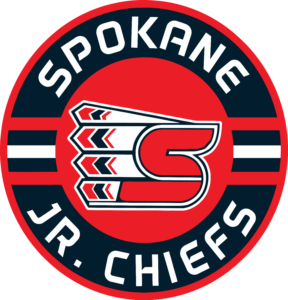Player Health and Safety
Safe Sport Reporting
The safety of its Participants is of paramount importance to both USA Hockey and Spokane Youth Hockey. This includes both on-ice and off-ice safety. The USA Hockey and Spokane Youth Hockey Safe Sport Programs (and its accompanying policies) address primarily off-ice safety in all USA Hockey’s programs.
USA Hockey and Spokane Youth Hockey have long had systems in place to protect its Participants from physical abuse, sexual abuse and other types of abuse and misconduct that can be harmful to youth hockey players and other Participants. These include without limitation Physical Abuse, Sexual Abuse, Hazing, Screening, and Locker Room Supervision Policies, in addition to Codes of Conduct applicable to administrators, coaches, officials, parents, players and spectators. The USAH Safe Sport Handbook, which was first adopted in 2012, brings together USA Hockey’s various policies to protect its Participants from all types of misconduct and abuse. All policies have been adopted by Spokane Youth Hockey.
Reporting Procedure
USA Hockey’s Reporting Policy is a key part of its Safe Sport Program and an effective reporting policy is crucial to preventing abuse. Section IV of the Safe Sport Handbook contains specifics on the Reporting Policy.
The Policy requires that every employee or volunteer of any USA Hockey Member Program must report (1) actual or perceived violations of the USA Hockey Safe Sport Program Handbook, (2) any violations of the policies prohibiting Sexual Abuse, Physical Abuse, Emotional Abuse, Bullying, Threats and Harassment, and Hazing, and (3) suspicions or allegations of child physical or sexual abuse to the appropriate USA Hockey representatives.
Additionally, in all cases involving suspicions or allegations of child physical or sexual abuse, every employee or volunteer of USA Hockey Member Programs must also report to the appropriate law enforcement authorities.
Report to USA Hockey. To make a report to USA Hockey, you may do so either by: (1) clicking on “Report to USA Hockey” and completing the Reporting Form, (2) emailing to usahockeysafesport@usahockey.org, or (3) calling 800-888-4656.
Report to PNAHA. To make a report to our PNAHA Affiliate Safe Sport Coordinator, please email safesport@pnaha.com.
Report to the US Center for SafeSport. The Center accepts all reports of sexual abuse and child abuse within the U.S. Olympic and Paralympic Movement. Report here if you have reasonable suspicion of sexual misconduct or harassment, child abuse (including child sexual abuse), or intimate relationships involving an imbalance of power.
The Center also accepts reports of emotional and physical misconduct (including but not limited to bullying, hazing, stalking, and harassment) within the U.S. Olympic and Paralympic Movement. Reports of emotional and physical misconduct can also be reported directly to your sport’s national governing body (NGB).
Reports may be made anonymously to USA Hockey or The Center, with no cost or fee associated with reporting.
Report to Spokane Youth Hockey. If issues do not involve suspicions or allegations of child physical or sexual abuse (which require mandatory reporting to the US Center for SafeSport), we advise that all other reports are made directly to the Spokane Youth Hockey Safe Sport Director in order to effectively and efficiently manage an immediate investigation into any and all allegations of wrongdoing. To report to Spokane Youth Hockey, please email safesportdirector@spokanejrchiefs.com.
Concussion and injuries
Be Aware
Accidents and injuries can occur in the course of playing any youth sport. If you suspect that your player has suffered an injury or concussion, your athlete should be removed from the game or practice immediately. No athlete may return to activity after an injury and/or apparent head injury or concussion without medical clearance.
Spokane Youth Hockey requires that an Accident/Injury Report Form be filled out if your player is injured and/or has suffered an apparent head injury or concussion. This should be filled out promptly after the incident with the assistance of your Team Manager and/or Coach. Please see below.
50% - Of concussions go undetected.
28% - Reinjured after returning too soon.
70% - Of concussions occur during games.
Concussion Signs & Symptoms
It's better to miss one game than a season.
What The Coaches Can See
- Appears dazed or stunned
- Is confused about assignment or position
- Forgets sports plays
- Is unsure of game, score, or opponent
- Moves clumsily
- Answers questions slowly
- Loses consciousness (even briefly)
- Shows behavior or personality changes
- Can't recall events prior to hit or fall
- Can't recall events after hit or fall
What the Player May Feel
- Headache or "pressure" in head
- Nausea or vomiting
- Balance problems or dizziness
- Double or blurry vision
- Sensitivity to light
- Sensitivity to noise
- Feeling sluggish, hazy, foggy, or groggy
- Concentration or memory problems
- Confusion
- Does not "feel right"
Action Plan
If you suspect that a player has a concussion, you should take the following steps:
- Remove athlete from play.
- Parents: Ensure your athlete is evaluated by an appropriate health care professional. Do not try to judge the seriousness of the injury yourself.
- Coaches: Inform athlete's parents or guardians about a known or possible concussion.
Athletes can return to play only with written permission from an appropriate health care professional. Please see the Return to Play Form below.
